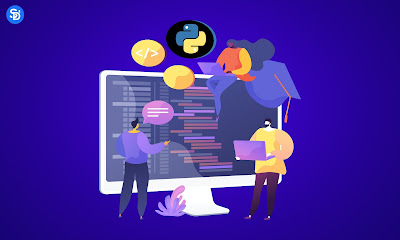Exploring Python Frameworks for Rapid App Development
Python frameworks for rapid app development offer a range of features and functionalities to expedite the development process. They often come with built-in tools for routing, templating, database integration, and user authentication, among other common tasks. This eliminates the need for developers to reinvent the wheel and provides a solid foundation to build upon.
Frameworks like Flask, Django, Pyramid, Bottle, and CherryPy are popular choices in the Python ecosystem. Flask and Bottle are known for their simplicity and flexibility, making them suitable for small to medium-sized projects. Django, on the other hand, is a comprehensive framework that provides a robust set of tools for building complex web applications and content management systems.
Django: The Robust and Comprehensive Framework
Django is a robust and comprehensive Python framework for web application development. With its "batteries included" approach, Django provides a wide range of built-in features and tools, including an ORM (Object-Relational Mapping) for database management, an admin interface for easy content management, and robust security measures. It follows the model-view-controller (MVC) architectural pattern, promoting code organization and separation of concerns. Django's extensive documentation and active community make it beginner-friendly and well-supported. Its scalability and versatility make it suitable for both small-scale projects and large, enterprise-level applications. Django empowers developers to build feature-rich web applications quickly and efficiently.
Flask: Lightweight and Flexible Framework for Rapid Prototyping
Flask is a lightweight and flexible Python framework that is ideal for rapid prototyping and building small to medium-sized web applications. It offers a minimalist design and focuses on simplicity and ease of use. With Flask, developers have the freedom to choose the components they need, allowing for a highly customizable development experience. If you are looking to leverage the power of Flask for your project, consider partnering with a Python development company. They can provide expertise in utilizing Flask's features effectively, ensure efficient development, and deliver high-quality applications. Its modular structure and extensive ecosystem of extensions make it easy to add functionalities such as database integration, authentication, and form handling.
Flask's simplicity doesn't compromise its power. It provides a solid foundation for building web applications with its built-in development server, integrated unit testing support, and efficient routing system. Flask's template engine, Jinja, enables easy HTML rendering and dynamic content generation.
One of Flask's major strengths is its quick learning curve, making it an excellent choice for developers who want to get up and running swiftly. The framework's well-documented API and active community provide ample resources and support. Whether you're prototyping a new idea or building a small-scale application, Flask allows for rapid development without sacrificing flexibility or functionality.
Pyramid: Versatility and Extensibility for Complex Applications
Pyramid is a versatile and extensible Python framework that excels in building complex web applications. It follows a minimalist approach, allowing developers to choose the components they need and customize the framework according to their project requirements. This flexibility makes Pyramid suitable for a wide range of applications, from small-scale projects to large enterprise-level systems.
Pyramid's architecture promotes scalability and maintainability by adhering to the principles of modularity and separation of concerns. It provides a solid foundation for building complex applications by offering features such as URL routing, view dispatching, authentication, and authorization mechanisms. Additionally, Pyramid seamlessly integrates with popular database systems and supports various templating engines.
The framework's strength lies in its extensive configurability and extensibility. Developers can leverage its add-on ecosystem to enhance functionality or integrate with other libraries and tools. Pyramid's documentation is comprehensive and detailed, making it easier to grasp its concepts and utilize its advanced features.
Whether you're building a content-rich website, an API-driven application, or a complex enterprise system, Pyramid's versatility and extensibility allow you to architect and develop robust applications while maintaining flexibility and scalability.
Bottle: Lightweight and Minimalistic Framework for Small-scale Apps
Bottle is a lightweight and minimalistic Python framework that is perfect for developing small-scale web applications. It has a small code footprint and minimal dependencies, making it easy to install and deploy. Bottle provides a straightforward and intuitive interface for routing requests and handling responses. It supports various data formats, allowing easy development of APIs. Bottle also includes a built-in templating engine for generating dynamic content. With its simplicity and ease of use, Bottle is an excellent choice for rapid prototyping, simple projects, or when you need a lightweight framework without the complexity of larger frameworks.
Comparative Analysis of Python Frameworks
Here is a comparative analysis of the Python frameworks discussed earlier:
Flask: Lightweight and flexible, Flask is suitable for rapid prototyping and small to medium-sized applications. It offers simplicity and customization options.
Django: Robust and comprehensive, Django is ideal for complex applications. It provides a wide range of built-in features and follows the MVC pattern.
Pyramid: Versatile and extensible, Pyramid is suitable for building complex applications. It offers flexibility, modularity, and excellent scalability.
Bottle: Lightweight and minimalistic, Bottle is perfect for small-scale projects and rapid development. It has a small code footprint and minimal dependencies.
Each framework has its strengths and is suited for different use cases. Flask and Bottle are great for simplicity and quick development, while Django and Pyramid provide more features and scalability. Choose based on project requirements, complexity, and development preferences.
Conclusion
In conclusion, Python offers a variety of frameworks for rapid app development, each with its own strengths and purposes. These services provide expertise in utilizing the frameworks effectively, ensuring efficient development, and delivering high-quality applications. By partnering with a Python development services provider, you can access a team of experienced developers who can guide you throughout the development process, from design to deployment, and offer comprehensive support for your project's success.
Choosing the right framework depends on the project requirements, development preferences, and scalability needs. Consider factors such as ease of use, available documentation and community support, the size and complexity of the application, and the desired level of customization. Python's expressive syntax, extensive library ecosystem, and the active community make it an excellent choice for rapid app development. Exploring these frameworks will help streamline development, boost productivity, and enable the delivery of high-quality applications efficiently.
.jpg)



Comments
Post a Comment